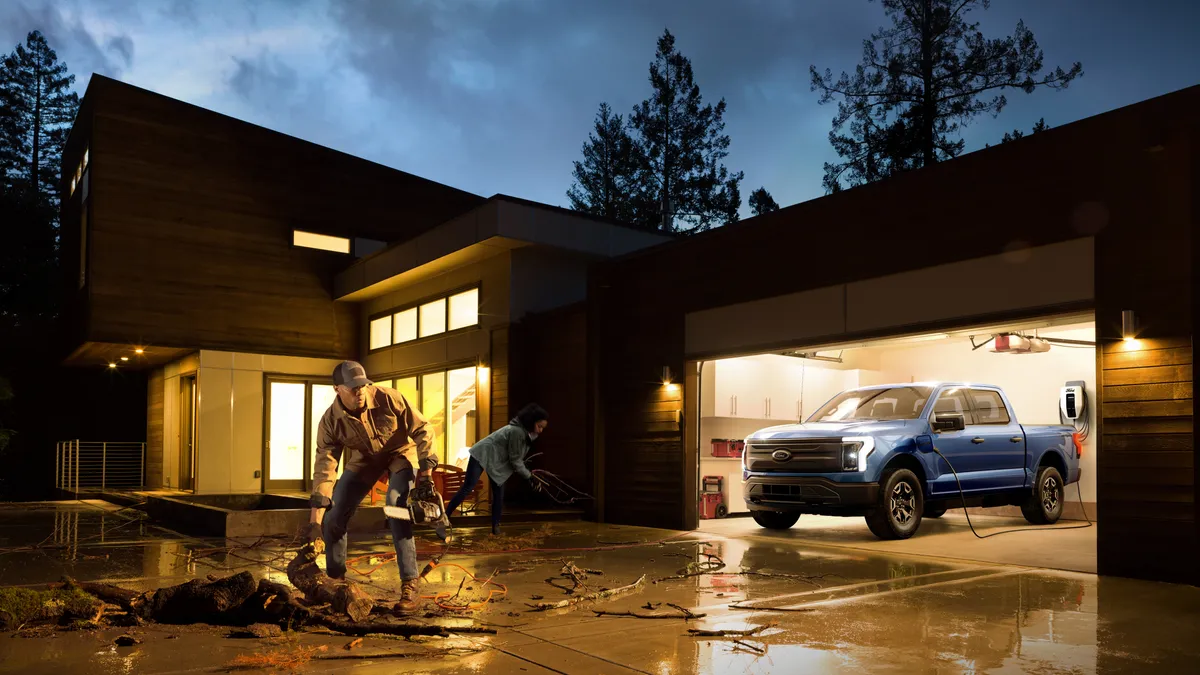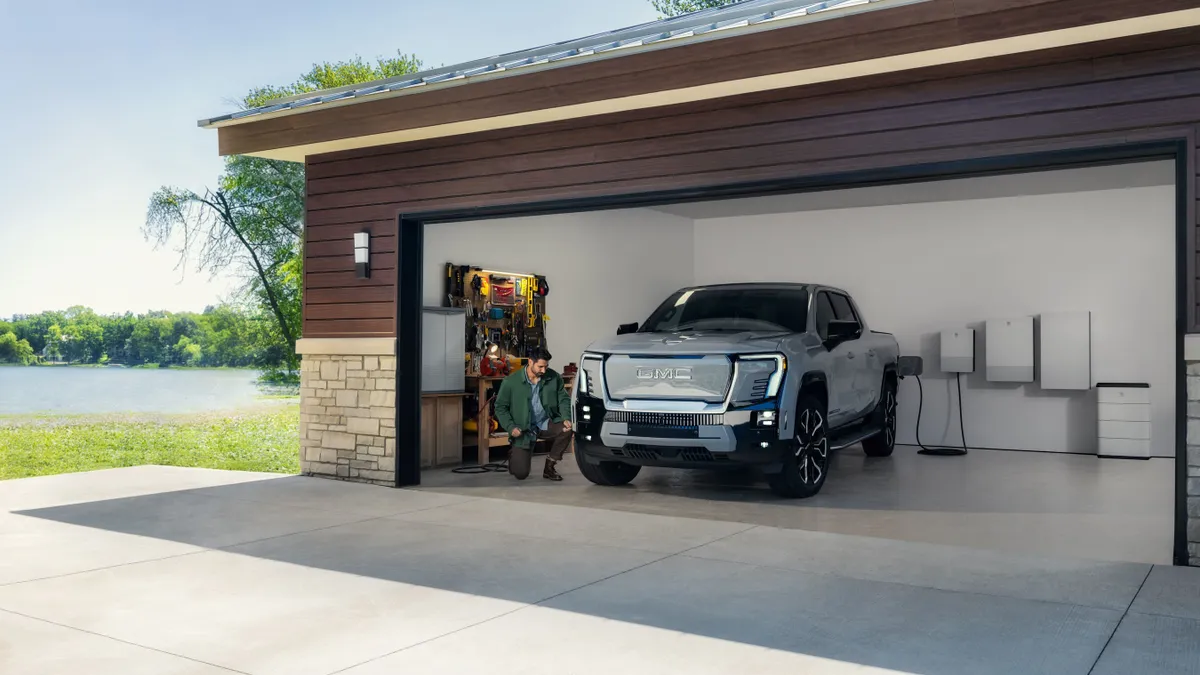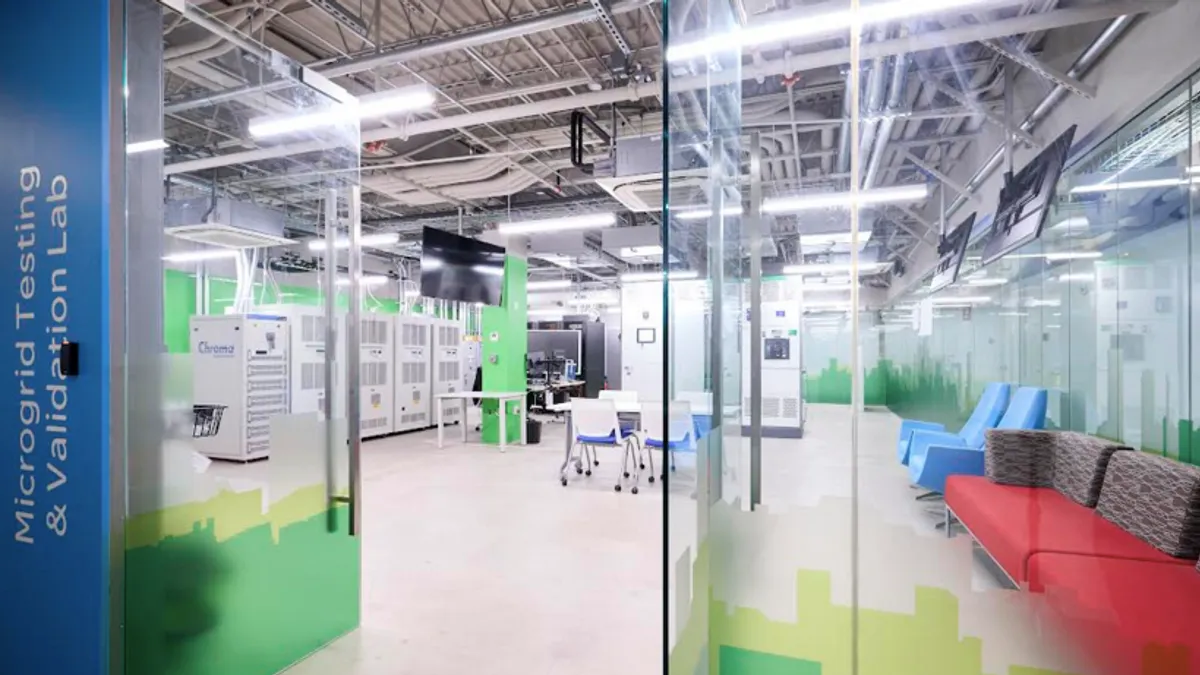Whatever shadow the omicron variant is casting over the Consumer Electronics Show (CES) this week, one area is clearly generating hype: The chance to show off what's new when it comes to electric vehicles (EVs). The sprawling Las Vegas gathering, typically centered on the tech world, has drawn exhibitors spanning General Motors, BMW, Hyundai, Stellantis and Daimler. Some of them, like General Motors, have shifted to a virtual format due to COVID-19, but the announcements remain substantial. Mercedes Benz yesterday revealed a sporty Vision EQXX concept car focused on long-range travel, while General Motors' Chevrolet brand plans to showcase an electric iteration of its Silverado pickup Wednesday.
A CES agenda loaded with EV presentations speaks to broader industry efforts to close the gap with Tesla, which wields an impressive head start and has reset consumer expectations around sustainable offerings despite minimal traditional marketing. After years of playing catch-up, legacy original equipment manufacturers (OEMs) now see an opportunity to put themselves on the leading edge of the industry at a time when the mass appeal of EVs is nearing an inflection point. Actually meeting the opportunity in the quickly evolving EV space could require some outside-the-box marketing to navigate, including rolls of the dice in the metaverse.
"Not a single OEM that I talk to says, 'We want to match what's in the market,'" said Brian Irwin, Accenture North America's managing director of automotive and mobility leader. "Everybody wants to leapfrog. They're being much more aggressive in EVs and they have expectations of market leadership in and of themselves.
"It is a space that is getting increasingly additive," Irwin said.
EV marketing is generally expected to become more aggressive in 2022 following a plethora of launch announcements and corporate brand refreshes last year. Consumer excitement is clear as the segment expands to encompass more popular makes and models like pickups. With greater diversity comes a chance for auto's old guard to message around qualities that upstarts have less of a stake in, including value and rich brand heritage.
"We're in an era of foundational communications in this space," said Mat Zucker, a senior partner at brand transformation consultancy Prophet. "The conversation is going to be around further kinds of differentiation. I think performance will be redefined and broadened."
Rounding a corner
Current bullishness around EVs follows a series of false starts for the segment. Adoption remained sluggish throughout the 2010s as fuel-economy standards for internal combustion engines improved and cost created persistent barriers to entry for many consumers.
A changing of the political guard and the stark realities of climate change could be creating a groundswell of support. Consumer interest in EVs has tripled since 2018, according to Ipsos data, an upward trend girded by increased consumer familiarity and greater choice.
In a study released in September, Accenture found that nearly two-thirds of consumers now describe themselves as "sustainability-minded drivers," making environmental considerations a primary concern. The research surveyed 8,500 respondents in the U.S., China and eight countries in Europe.
"We saw another sea tide of sentiment shift [in 2021] when the new administration promoted their agenda, which was much more environmentally focused than we've seen previously, and all of the issues that we as a society deal with around the environment start to play out a little bit more," Accenture's Irwin said. "That's where I think there's been a cascading of similar positive sentiment."
Economics is still an area for OEMs to address, but the sustainable premium isn't viewed as the big hurdle it once was. Among the sustainability-minded driver group Accenture identified, 30% were willing to pay between 1%-5% more for a more sustainable vehicle, while more than 60% were willing to pay at least 6% more. The findings speak to how the appeal of EVs has broken out of a niche that was once narrowly based around early movers mostly invested in acquiring the shiniest, newest tech.
"When you targeted the first adopters, it was a very green-focused message, it was a very tech-savvy message," said Lindsay Murtagh, chief client officer at PHD, an agency that is part of Omnicom Group. "It's evolved, and depending on who you're targeting will determine what the creative decides to message to them."
Thinking beyond green
If the argument for automakers hitting the gas on EVs in 2022 is partially motivated by existential climate questions, consumers shouldn't expect to see that mandate reflected in marketing. Tackling touchy social topics has become common for brands in recent years, but presents a risk for car companies that are feeling greater pressure to spur adoption of EVs than notch social media accolades.
"If you look at the various brands pushing electric vehicles, sustainability isn't necessarily an above-the-fold message," said David Yang, director of innovation consulting at R/GA.
The Ford F-150 Lighting serves as a potential case study. Pickups tend to position themselves around utility, and the vehicle's product page dedicates plenty of real estate to describing functions such as a Phone As A Key feature and Ford's Intelligent Backup Power options. Ford had to halt reservations on the model at 200,000 in December due to manufacturing concerns.
"Brands are treading lightly and rightly for their customers so as not to alienate them."

David Yang
Director of innovation consulting, R/GA
Prioritizing function will likely be a common theme as OEMs emphasize qualities like driving range to a skeptical public that's not yet accustomed to how EVs work. At least in the short term, auto marketing may not undergo radical changes in the same way that other categories like packaged goods have in the purpose-driven era of brand-building.
"This sensitivity by the brands to play to their audiences and intended customers is a very shrewd and smart one," Yang said. "Brands are treading lightly and rightly for their customers so as not to alienate them."
That's not to say no EV brands will fly the sustainability banner. Rivian, a startup that Ford retains a stake in despite a joint deal to develop EVs recently falling through, shares a lofty message on its homepage — "Preserving the natural world. Forever." — accompanied by crisp photography of mist-covered mountains. More companies will also likely tout their green bona fides to shareholders as sustainability becomes a more significant means of securing investments.
Still, campaigns highlighting price, performance and availability will lead the pack for more mass-market brands, along with efforts that lean into heritage through electrified versions of well-loved models.
"A story around value … that's traditional OEMs bread and butter," Yang said. "There's a lot of strength and equity there that they can tap into."
Obstacles ahead
Price and brand equity will also be important wedges in the race against Tesla, which has rolled out cheaper options like the Model 3 but largely remains a premium brand.
"If everybody's in the market, and we have negated that product offering perspective, brand and all of the things that brand represents then are back on the table."

Brian Irwin
Managing director of automotive and mobility leader, North America, Accenture
The company does no traditional advertising, nor does it have a public relations department. Its lead is instead fueled by word-of-mouth and the fervent online following behind founder and CEO Elon Musk — advantages that older OEMs without a foot in the startup world will struggle to replicate.
"It's very hard to have a conversation about EVs presently without thinking about Tesla's outsized impact," Yang said. "While brands might not be acknowledging Tesla directly, they are certainly thinking about them behind closed doors."
In the absence of chief executives that inspire such cultish devotion, legacy automakers have household brand names to lean on. Along with the F-150, familiar faces receiving EV makeovers include Mustang and Hummer — hardly lines associated with a positive environmental footprint.
"If I have a plethora of different brands all offering a [battery electric vehicle] powertrain, brand then becomes important as a defining feature," Irwin said. "If everybody's in the market, and we have negated that product offering perspective, brand and all of the things that brand represents then are back on the table."
Another obstacle to legacy automakers' EV momentum stems from the supply chain. Semiconductor shortages remain a pain point across the industry, and failures to fulfill demand could further put off consumers who have long seen EVs as failing to realize their potential.
Even as car lots remain sparse, marketers should think twice before going quiet on EV marketing, experts cautioned. Cadillac, for instance, switched its holiday playbook away from the usual deals and discounts to instead prop up brand-building initiatives behind an all-electric Lyric model slated to hit dealerships in 2022's first quarter. Preorders for the SUV sold out within minutes of going live in the fall.
"What we haven't stopped is the strategic investment," Cadillac CMO Melissa Grady during a talk addressing supply chain challenges at the Advertising Week conference in October.
That's a tack other auto brands should consider if they want to stand out in a field that's primed to only get more competitive. At the same time, companies that do wield the inventory have a chance to raise their profile if competitors can't realize production goals.
"Just because you don't have a specific model in the showroom doesn't mean that you can't advertise your brand and support that," said PHD's Murtagh. "There are always opportunities, so it might not be lower funnel, it's more upper funnel."
New avenues to explore
Another tactic that could see experimentation related to EVs in 2022 is the metaverse, particularly as in-person showings are imperiled by the same COVID-19 fears that have shaken up CES.
Hyundai last year established a virtual venue on the gaming platform Roblox that was designed to showcase its mobility and EV products, including the Ioniq 5 all-electric SUV. Roblox is popular with Gen Z and Gen Alpha consumers, making the theme park-like activation — the first of its kind from a global automaker— a clear bid to foster loyalty with the next generation of drivers.
While the metaverse won't become a major line item for auto brands in the near term, it's possible that 2022 will serve to further test the waters and engage a group of up-and-coming buyers more readily familiar with spaces like gaming and who care more about the environment.
"As younger car buyers are jumping in the market, of course EVs will be appealing. Meeting these younger potential customers where they are with respect to channels will be important," Yang said.
"Given that we're not all necessarily engaged in the metaverse at this moment, it will almost be a pragmatic way to experiment with some things so that they've got the right baseline to work with as those things actually take off," he added.























